3 Proven Stretches to Relieve Lower Back Pain
September 26, 2024
3 Proven Stretches to Relieve Lower Back Pain
Is your lower back pain a persistent and frustrating issue that disrupts your working and social life?
Many people struggle with discomfort from prolonged sitting or the strain of everyday activities, often finding it difficult to manage the pain effectively. Ignoring it only leads to more issues, and relying on medication is not a sustainable solution.
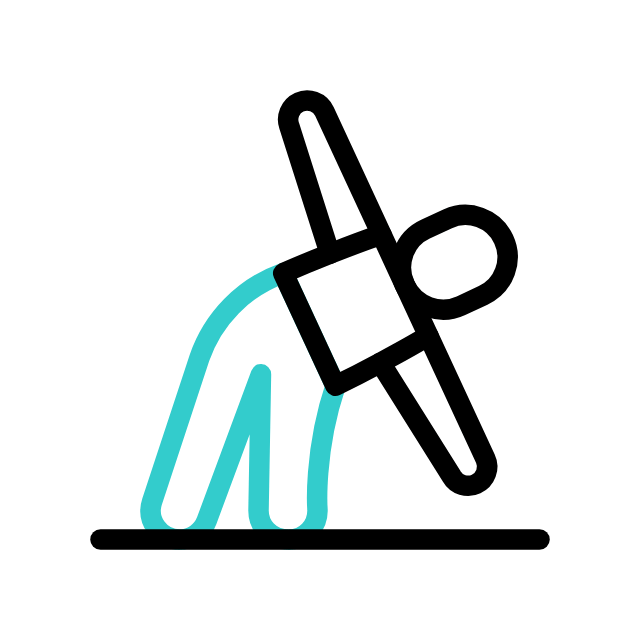
Fortunately, simple, targeted stretches can provide significant relief. In this blog, we’ll introduce you to three scientifically backed stretches that are easy to perform, require no special equipment, and can help alleviate lower back pain almost instantly. For more long term solutions consider more effortless and personalised care plans such as Curv - early access above.
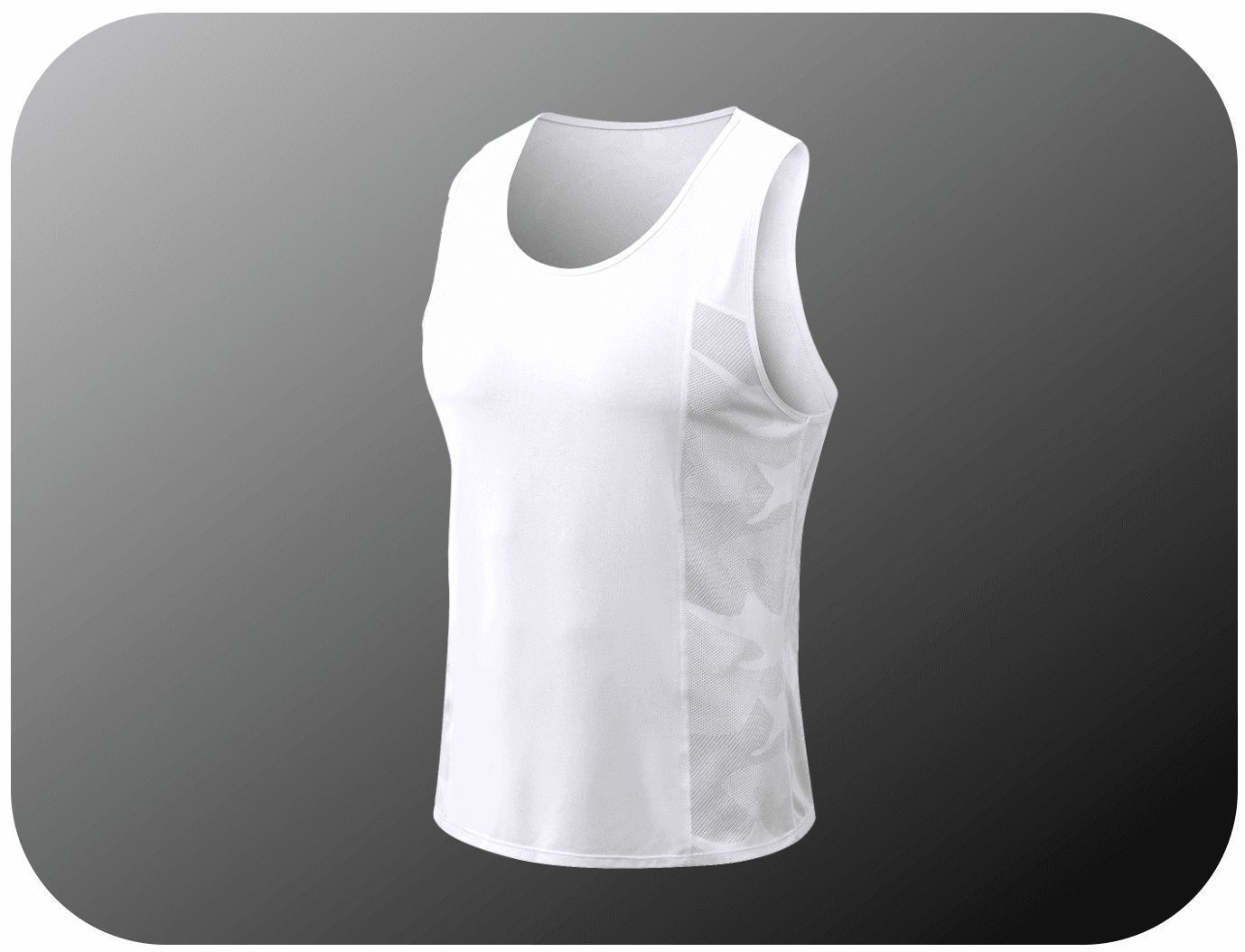
1. Cat-Cow Stretch
The Cat-Cow Stretch is a gentle yoga exercise that promotes flexibility in the spine and helps relieve tension in the lower back muscles. It’s a great way to improve mobility while also stretching out the muscles that can cause pain.
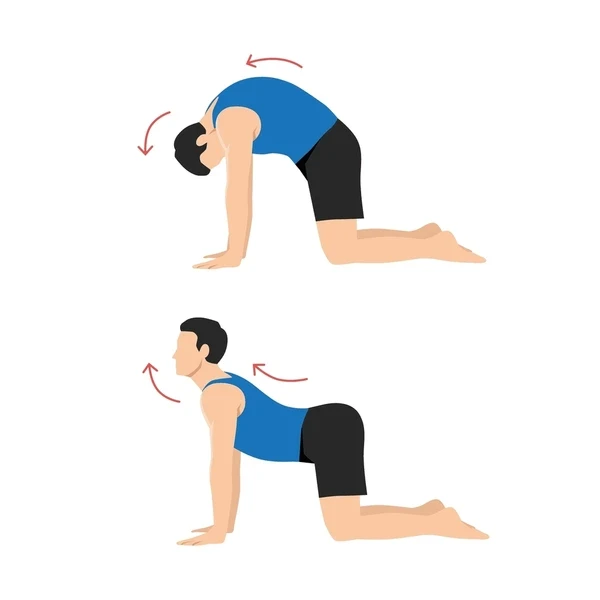
How to Perform:
Begin on all fours with your hands directly under your shoulders and knees under your hips.
Inhale deeply, arching your back and tilting your pelvis forward. Lift your head and chest, allowing your belly to drop towards the floor (this is the "Cow" position).
Exhale as you round your back upwards, pulling your belly button towards your spine and tucking your chin towards your chest (this is the "Cat" position).
Repeat the movement for 10-15 reps, moving with your breath.
Why It Works:
The alternating motion between arching and rounding your back increases spinal flexibility and relieves tension in the lower back. This movement helps to reduce stiffness and improve overall posture, two key factors in alleviating back pain.
2. Child’s Pose
Child’s Pose is another yoga exercise that gently stretches the lower back and provides relief from tension. It’s known for its relaxing effect and ability to stretch out the muscles surrounding the spine, making it an excellent go-to exercise for back pain relief.
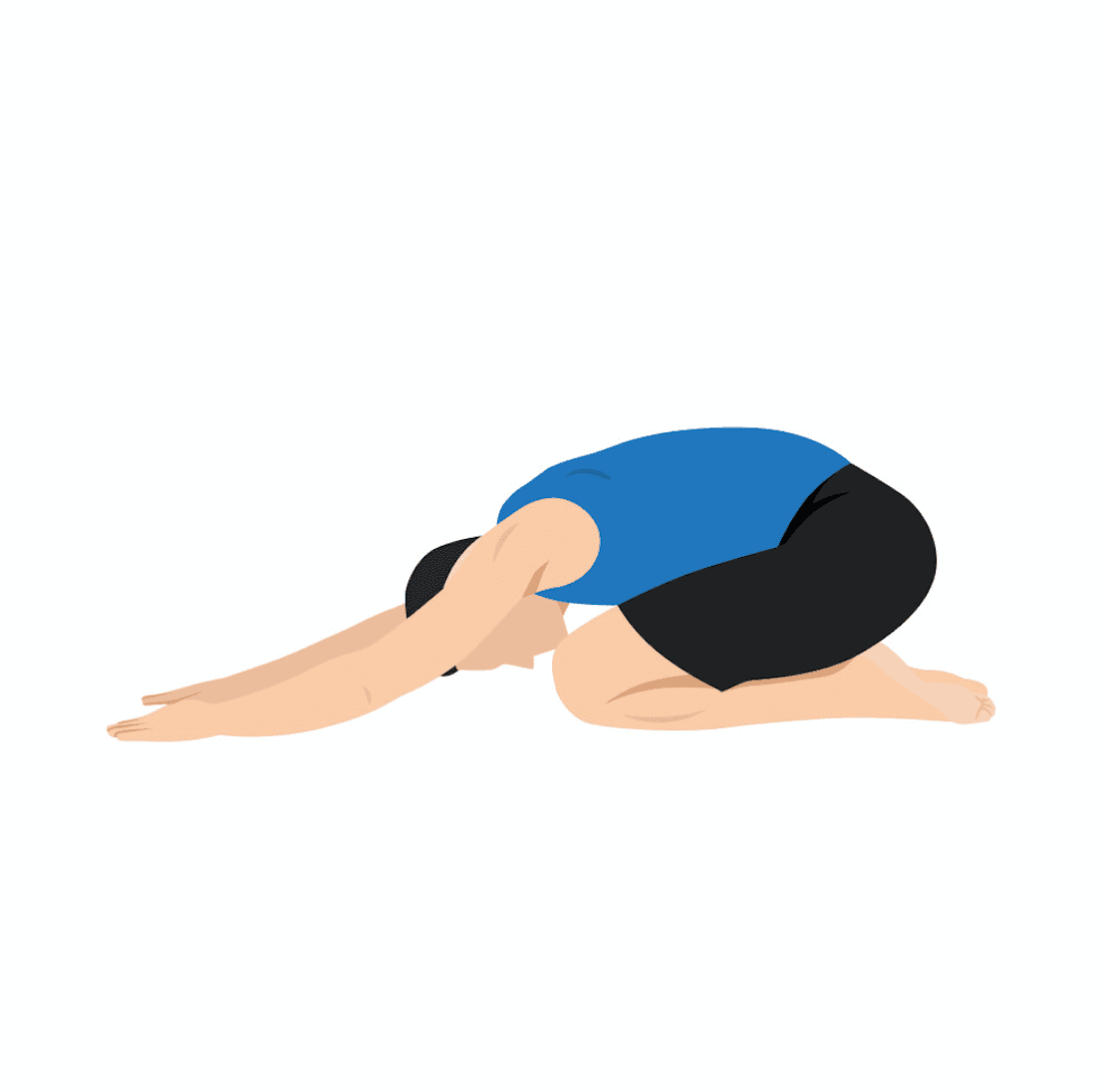
How to Perform:
Start by kneeling on the floor, with your big toes touching and your knees spread apart.
Sit back on your heels, then extend your arms forward as you lower your torso toward the ground.
Rest your forehead on the floor and hold the position for 20-30 seconds, focusing on deep breathing.
Return to a seated position and repeat 2-3 times.
Why It Works:
Child’s Pose provides a gentle stretch to the muscles along the spine, which helps release built-up tension in the lower back. It also encourages relaxation, reducing the stress that can often exacerbate pain.
3. Pelvic Tilts
Pelvic tilts are a simple but highly effective exercise that helps strengthen the lower abdominal muscles, which play a crucial role in supporting the spine. By activating the core, you can reduce strain on the lower back and promote better posture.
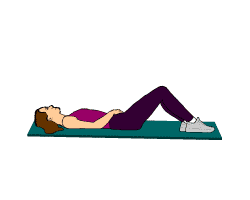
How to Perform:
Lie on your back with your knees bent and feet flat on the floor, hip-width apart.
Press your lower back into the floor by engaging your abdominal muscles and tilting your pelvis upward slightly.
Hold the position for a few seconds, then relax.
Repeat the movement 10-15 times.
Why It Works:
Pelvic tilts help stabilise the lower spine by strengthening the core muscles that support the back. This exercise also helps realign the pelvis, which can ease pain caused by poor posture or muscle imbalances.
Making These Stretches Part of Your Routine
While these stretches can offer immediate relief, their effectiveness increases with regular practice. Try incorporating them into your daily routine, especially if you spend long hours sitting or standing. Start with a few minutes of these stretches each day, and gradually increase the duration as your flexibility improves. These stretches are not medical advice and you should always seek out a professional.

If you're dealing with chronic back pain, consider pairing these stretches with other non-invasive treatments like Cognitive Functional Therapy (CFT) or wearable devices designed to track movement like Curv, which provides personalised feedback.
https://www.flaticon.com/free-animated-icons/meditation